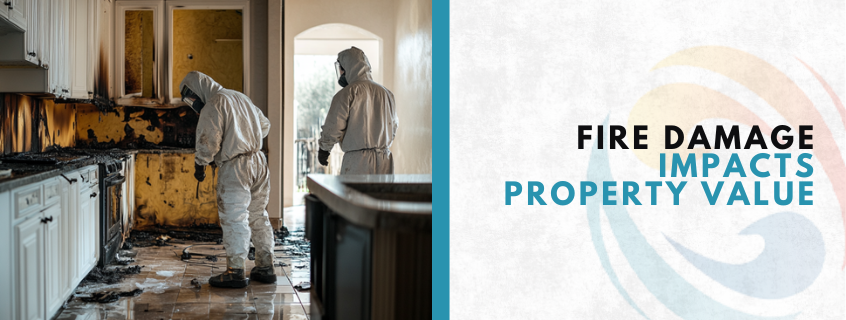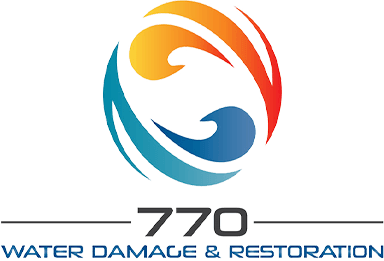
When a fire strikes a home, the damage is obvious—scorched walls, smoke-stained ceilings, ruined belongings. But what many homeowners don’t immediately realize is how fire damage continues to affect their property value long after the flames are gone. This isn’t just a cleanup issue—it’s a long-term financial reality.
Imagine standing outside your charred home, watching firefighters finish their work. You’re safe, your family is safe, but then comes the gut-punch: what is your property worth now? How does that blackened drywall and weakened structure affect the price tag on the home you worked so hard for?
This blog dives deep into how fire damage impacts property value over time—and what you can do to protect your investment. Understanding how fire damage impacts property is essential for safeguarding your financial future.
When the Flames Go Out: What Happens First
Let’s start from the beginning.
After a fire, your property is inspected for safety. Professionals assess damage from top to bottom—everything from burnt wood framing to smoke particles inside your HVAC system. In most cases, the destruction goes far beyond what you can see.
Here’s what’s typically affected:
- Structural support beams weakened by extreme heat
- Roofing and insulation damaged or fully destroyed
- Smoke and soot settling into walls, floors, and vents
- Water damage from firefighting efforts—yes, water damage is almost always part of the picture
- Electrical systems shorted or completely melted
- Personal belongings reduced to ash or permanently stained
These aren’t just repair costs—they’re red flags for anyone considering buying your home in the future.
The Real Cost: How Fire Damage Impacts Property Value
Whether you plan to sell your home or not, its market value is crucial. It impacts your equity, refinancing options, insurance premiums, and even neighborhood comps. Here’s how fire damage chips away at that value:
1. Perceived Risk for Future Buyers
Buyers are wary of properties with a fire history—even after full restoration. In many cases, it doesn’t matter how beautiful the home looks today. The memory of the fire lingers.
When evaluating a home, remember that fire damage impacts property in many ways that may not be apparent at first glance. This ongoing risk can deter future buyers and decrease overall value.
These issues illustrate just how significantly fire damage impacts property values, reinforcing the need for comprehensive inspections and disclosures.
Think of it like buying a car that’s been in an accident. You can replace parts, but doubts still remain. Did the repairs really fix everything? Will issues show up later?
2. Stigma in the Real Estate Market
Understanding the long-term consequences of how fire damage impacts property can guide you in making informed choices regarding repairs and renovations.
Homes that have suffered fire damage often sell for 10–30% less than their counterparts. Why?
In summary, to truly comprehend the value of your home, it’s crucial to grasp how fire damage impacts property. Being proactive helps mitigate potential losses.
- Agents must disclose fire history
- Buyers expect discounted prices
- Inspections become more intense
- Some mortgage lenders hesitate to approve loans for such properties
Table: Comparison – Fire-Damaged vs Non-Fire-Damaged Homes
| Factor | Fire-Damaged Home | Undamaged Home |
| Average Sale Price | 10–30% lower | Market rate |
| Time on Market | Longer | Shorter |
| Buyer Confidence | Lower | Higher |
| Insurance Premium | Higher | Standard |
The Lingering Effects You Can’t See
Even after reconstruction, the ghosts of a fire can haunt your home in invisible ways. These hidden effects matter to future buyers—and they’ll matter to you when it’s time to sell.
Mold and Mildew Growth
Water used to extinguish flames soaks deep into floors, walls, and ceilings. If not properly dried out (and many DIY jobs don’t go far enough), mold begins to grow within 24–48 hours.
This leads to:
- Health concerns for future occupants
- Expensive remediation costs
- Additional property value loss
Smoke Damage in Ducts and Insulation
Smoke doesn’t just coat surfaces—it penetrates. That means odors can linger in HVAC systems, insulation, and even wood grain. Even after full cleaning, some smells may return during hot or humid weather.
Fire Damage Impacts Property Over Time—Even After Repairs
Even if a fire occurred five years ago, it can still haunt your property value today. Here’s how:
Insurance History Follows the Property
Once your property has a filed claim for fire damage, insurers see it as a higher risk moving forward. This means:
- Higher premiums
- Less coverage options
- Possible denial of future claims
Buyer Inspection Red Flags
Buyers often hire inspectors who can uncover poor repairs or coverups. If restoration wasn’t done professionally or completely, the deal could fall apart.
Emotional Responses from Potential Buyers
Home is where people should feel safe. If a buyer senses even the smallest chance that your home isn’t safe—because of a fire in its past—they’ll likely move on.
Story Time: A Real Example
Meet Jenna, a homeowner in Southern California. In 2019, a kitchen fire destroyed much of her ground floor. Though insurance paid for full restoration, her property value dropped significantly. Why?
- Local appraisers marked her home as “stigmatized”
- The smell of smoke lingered despite deep cleaning
- She had to disclose the fire to all potential buyers
- Her agent had to adjust the listing price three times
- The home took 10 months to sell, compared to 2–3 for similar homes nearby
Despite spending $75,000 in repairs, Jenna sold her home for $90,000 less than market average.
In conclusion, the effects of fire damage impacts property are far-reaching and can linger long after the flames are extinguished.
Ultimately, a comprehensive understanding of how fire damage impacts property will empower homeowners in their restoration journey.
How to Regain Lost Property Value After Fire Damage
If you’re recovering from a house fire, all hope is not lost. While it’s true that fire damage impacts property value, there are steps you can take to minimize the long-term effects.
Step-by-Step Guide to Rebuilding Property Value
- Hire a Certified Restoration Team
Look for companies certified by the Institute of Inspection Cleaning and Restoration Certification (IICRC). They use advanced tools to detect hidden damage and fully restore your home—not just patch it. - Document Everything
Keep detailed records of repairs, costs, and inspections. These documents help when negotiating with buyers, lenders, or insurance companies. - Get an Independent Appraisal
Before you sell or refinance, hire an appraiser with experience in post-disaster properties. They can give you a realistic value that reflects your restoration efforts. - Upgrade Smartly
Turn the disaster into an opportunity. Replace old features with modern upgrades that appeal to buyers—like energy-efficient windows or smart-home tech. - Be Transparent with Buyers
Don’t hide the fire. Instead, show how you responded with professional repairs, upgrades, and improvements.
Pro Tips to Maintain or Improve Your Home’s Value After a Fire
Even after full restoration, maintaining your property’s condition is essential. Here are some actionable tips:
- Schedule annual inspections of HVAC, electrical, and roofing systems
- Install smoke detectors and fire extinguishers to demonstrate safety
- Keep landscaping tidy to reduce wildfire risk (especially in dry areas)
- Use fire-resistant materials like metal roofing or cement siding during repairs
Quick List: Fire-Resistant Home Materials
- Fiber-cement siding
- Metal roofing
- Tempered glass windows
- Fire-retardant-treated wood
- Non-combustible insulation
Timeline: How Fire Damage Affects Home Value Over Time
To understand how fire damage impacts property value long-term, let’s look at a simplified timeline:
Timeline of Impact:
| Time After Fire | Common Property Challenges |
| 1–3 Months | Visible damage, insurance claims, safety issues |
| 4–6 Months | Restoration begins, expenses pile up |
| 6–12 Months | Value reassessed, property may still smell smoky |
| 1–2 Years | Hidden mold issues emerge, buyer hesitations |
| 3–5 Years | Fire history still disclosed during resale |
A Second Chance: Turning Tragedy into Opportunity
While a fire can feel like the end of the road, many homeowners use it as a turning point. With the right team and strategy, it’s possible to turn your fire-damaged home into something even better than before.
At 770 Water Damage & Restoration, we’ve helped hundreds of homeowners reclaim their peace of mind and rebuild not just their homes—but their lives. We provide thorough, certified restoration services that help restore your property’s safety, value, and comfort.
Final Thoughts
Fire is devastating—but it doesn’t have to define your home forever.
By understanding how fire damage impacts property, you can make smarter choices during restoration, protect your investment, and reassure future buyers. Transparency, professionalism, and long-term maintenance are your keys to recovery.Need help after a fire? Contact 770 Water Damage & Restoration today. We’ll walk you through every step of the restoration process—from damage control to rebuilding value.
Frequently Asked Questions (FAQs)
1. How does fire damage affect a home’s resale value?
Fire damage can significantly impact a property’s resale value. Even after repairs, potential buyers may be wary due to concerns about structural integrity, lingering odors, or future issues. Homes with a history of fire damage often sell for less than comparable properties without such history. At 770 Water Damage & Restoration, we provide comprehensive fire damage restoration services to help mitigate these effects and restore your property’s value.
2. Can a house be sold after experiencing fire damage?
Yes, a house can be sold after experiencing fire damage. However, the selling price may be lower, and the pool of interested buyers might be smaller. Proper restoration is crucial to make the property marketable. 770 Water Damage & Restoration offers expert fire damage restoration services to help prepare your home for sale and maximize its market appeal.
3. What steps should I take immediately after a house fire to preserve property value?
After ensuring everyone’s safety and contacting emergency services, it’s essential to begin the restoration process promptly to prevent further damage. This includes securing the property, assessing the extent of damage, and starting cleanup and repairs. 770 Water Damage & Restoration provides 24/7 emergency services, arriving within 60 minutes in most cases, to help you begin the recovery process and preserve your property’s value.
4. Does homeowners’ insurance cover fire damage restoration costs?
Most homeowners insurance policies cover fire damage restoration costs. However, coverage can vary based on the policy and the circumstances of the fire. 770 Water Damage & Restoration works directly with your insurance provider to simplify the claims process and ensure you receive the coverage you’re entitled to for restoration services.
5. How long does the fire damage restoration process take?
The duration of the fire damage restoration process depends on the severity of the damage. Minor damages may take a few days to repair, while extensive damages could take several weeks. 770 Water Damage & Restoration provides efficient and thorough restoration services, aiming to restore your property to its pre-fire condition as quickly as possible while ensuring quality workmanship.
Moreover, recognizing how fire damage impacts property helps homeowners prioritize safety and value retention throughout their ownership.
Remember, understanding how fire damage impacts property can make a significant difference in your home’s long-term value.


